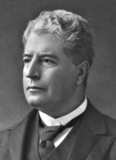
Back Elecciones federales de Australia de 1901 Spanish Élections fédérales australiennes de 1901 French Wybory parlamentarne w Australii w 1901 roku Polish
| |||||||||||||||||||||||||||||||||||||||||||||||||||||||||||
All 75 seats of the House of Representatives 38 seats were needed for a majority in the House All 36 seats of the Senate | |||||||||||||||||||||||||||||||||||||||||||||||||||||||||||
|---|---|---|---|---|---|---|---|---|---|---|---|---|---|---|---|---|---|---|---|---|---|---|---|---|---|---|---|---|---|---|---|---|---|---|---|---|---|---|---|---|---|---|---|---|---|---|---|---|---|---|---|---|---|---|---|---|---|---|---|
| Registered | 977,993 | ||||||||||||||||||||||||||||||||||||||||||||||||||||||||||
| Turnout | 502,556 (51.39%)[a] | ||||||||||||||||||||||||||||||||||||||||||||||||||||||||||
| |||||||||||||||||||||||||||||||||||||||||||||||||||||||||||
 Results by division for the House of Representatives, shaded by winning party's margin of victory. | |||||||||||||||||||||||||||||||||||||||||||||||||||||||||||
| |||||||||||||||||||||||||||||||||||||||||||||||||||||||||||
The 1901 Australian federal election for the inaugural Parliament of Australia was held in Australia on Friday 29 March and Saturday 30 March 1901. The elections followed Federation and the establishment of the Commonwealth of Australia on 1 January 1901. All 75 seats in the Australian House of Representatives, six of which were uncontested, as well as all 36 seats in the Australian Senate, were up for election.
After the initial confusion of the Hopetoun Blunder, the first Prime Minister of Australia, Edmund Barton, went into the inaugural 1901 federal election as the appointed head of a Protectionist Party caretaker government. While the Protectionists came first on votes and seats, they fell short of a majority. The incumbent government remained in office with the parliamentary support of the Labour Party, who held the balance of power, while the Free Trade Party formed the opposition. A few months prior to the 1903 election, Barton resigned to become a founding member of the High Court of Australia, and was replaced by Alfred Deakin.
Edmund Barton entered parliament at this election, as did six future prime ministers – Alfred Deakin, Chris Watson, George Reid, Joseph Cook, Andrew Fisher, and Billy Hughes – and future opposition leader Frank Tudor.
Cite error: There are <ref group=lower-alpha> tags or {{efn}} templates on this page, but the references will not show without a {{reflist|group=lower-alpha}} template or {{notelist}} template (see the help page).

